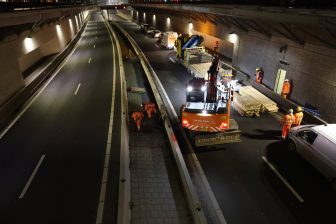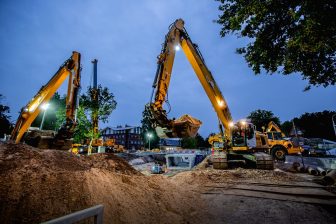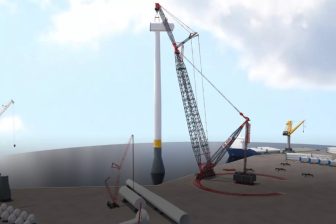ADB:$100 mln loan to Guangxi Wuzhou Urban Development Project
ADB to Help Protect PRC’s Wuzhou City from Geological Hazards
MANILA, PHILIPPINES – Nearly half a million residents in the city of Wuzhou in western People’s Republic of China (PRC) will benefit from a $100 million loan from the Asian Development Bank (ADB) that will help protect the mountainous city from landslides, slope collapse, and mud and debris flows.
The Guangxi Wuzhou Urban Development Project will adopt a new approach that focuses on disaster prevention instead of rehabilitation in addressing the geological hazard (geohazard) concerns of the city. The project will benefit the city’s entire urban population of 486,000.
The Wuzhou municipal government will contribute $82.5 million and the China Construction Bank will provide $80.9 million for the project.
The project will come up with a carefully-designed plan for Wuzhou city’s long-term urban expansion. Some 6,823 people, more than half of whom belong to low-income families, will be relocated to safe zones through the project.
Engineering measures will also be undertaken to make the evacuated areas risk-free for redevelopment. Geohazard forecasting and early warning capability will be strengthened to improve the geohazard management system of Wuzhou.
Over centuries, Wuzhou has served as a gateway city and a regional transport center to connect Guangxi autonomous region in southwestern PRC with national and international markets, particularly through river transportation.
The city will be developed into a multimodal regional transport hub, but its geological and geographic constraints will have to be addressed.
“The threat of geohazards is a major development constraint for Wuzhou. The project will help free thousands of people from such a constant threat and improve their living standards,” said Fei Yue, Principal Urban Development Specialist of ADB’s East Asia Department.
Wuzhou is divided into three parts by two major rivers. Due to the lack of flat urban land, residents are gradually building their houses along slopes of major valleys.
The mountains of Wuzhou are mainly formed by loose earth, eroded granite, and clastic rocks, making them vulnerable to rain-triggered geological disasters. Many densely-populated valleys have been classified as geohazard-prone zones.
With support from the central government, the Wuzhou municipal government has made enormous investments to strengthen the control of geological disasters, mainly by building and rehabilitating slope protection and retaining walls. However, under severe weather conditions, such protective structures can be washed away together with houses and other buildings.
U las zojuist één van de gratis premium artikelen
Onbeperkt lezen? Profiteer nu van de introductieaanbieding voor € 10,- per maand.
Bent u al abonnee?



